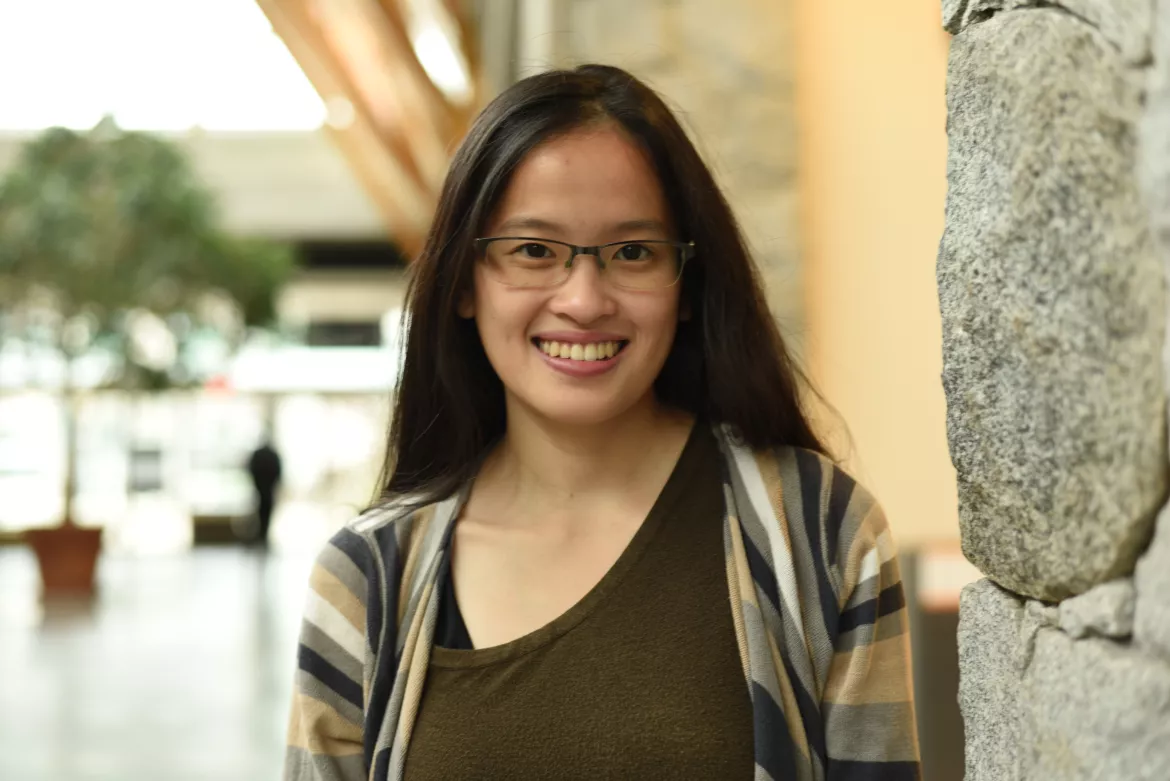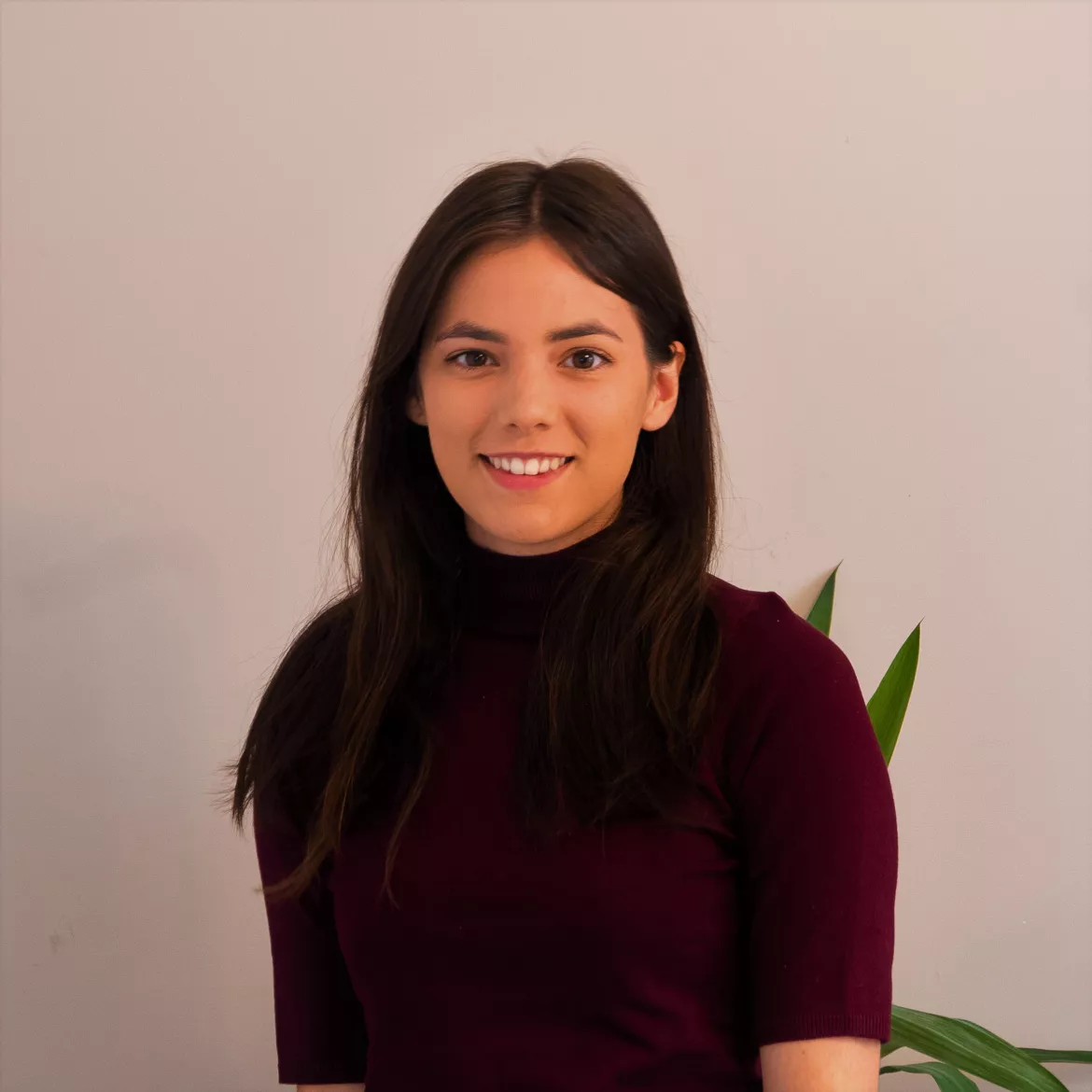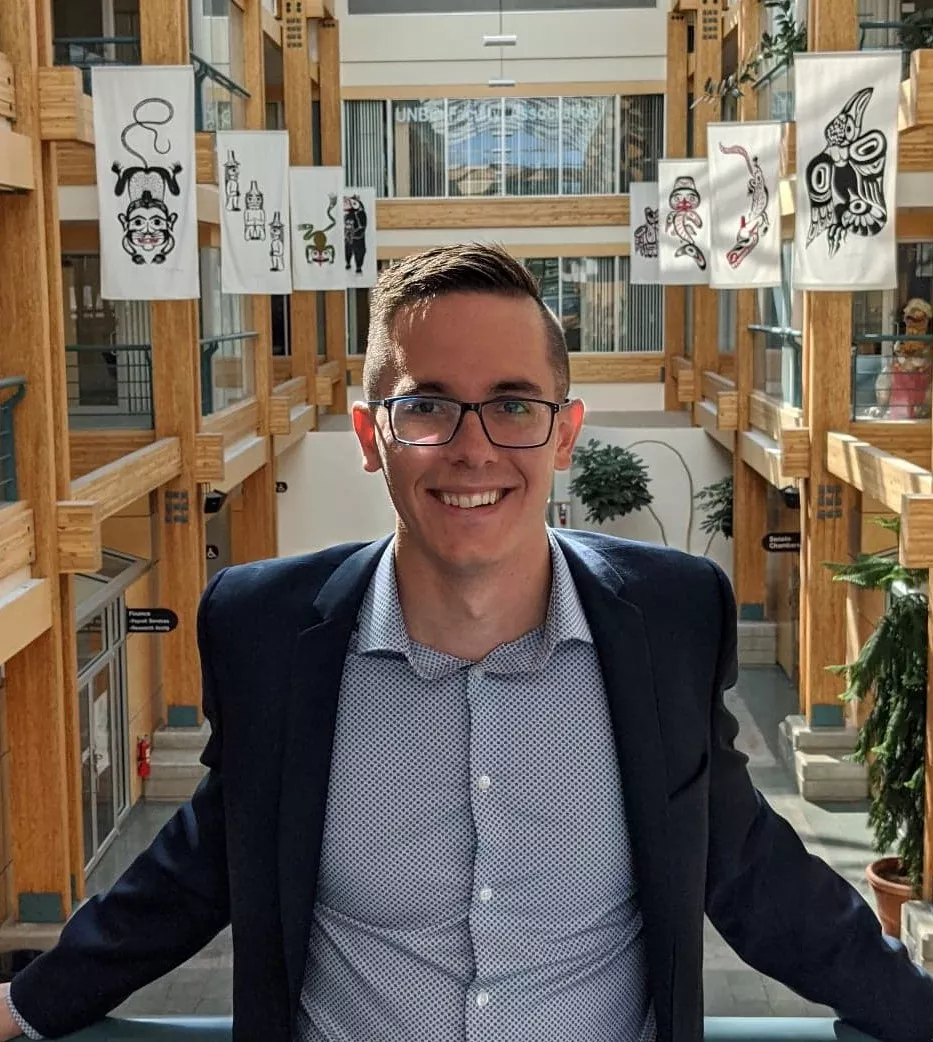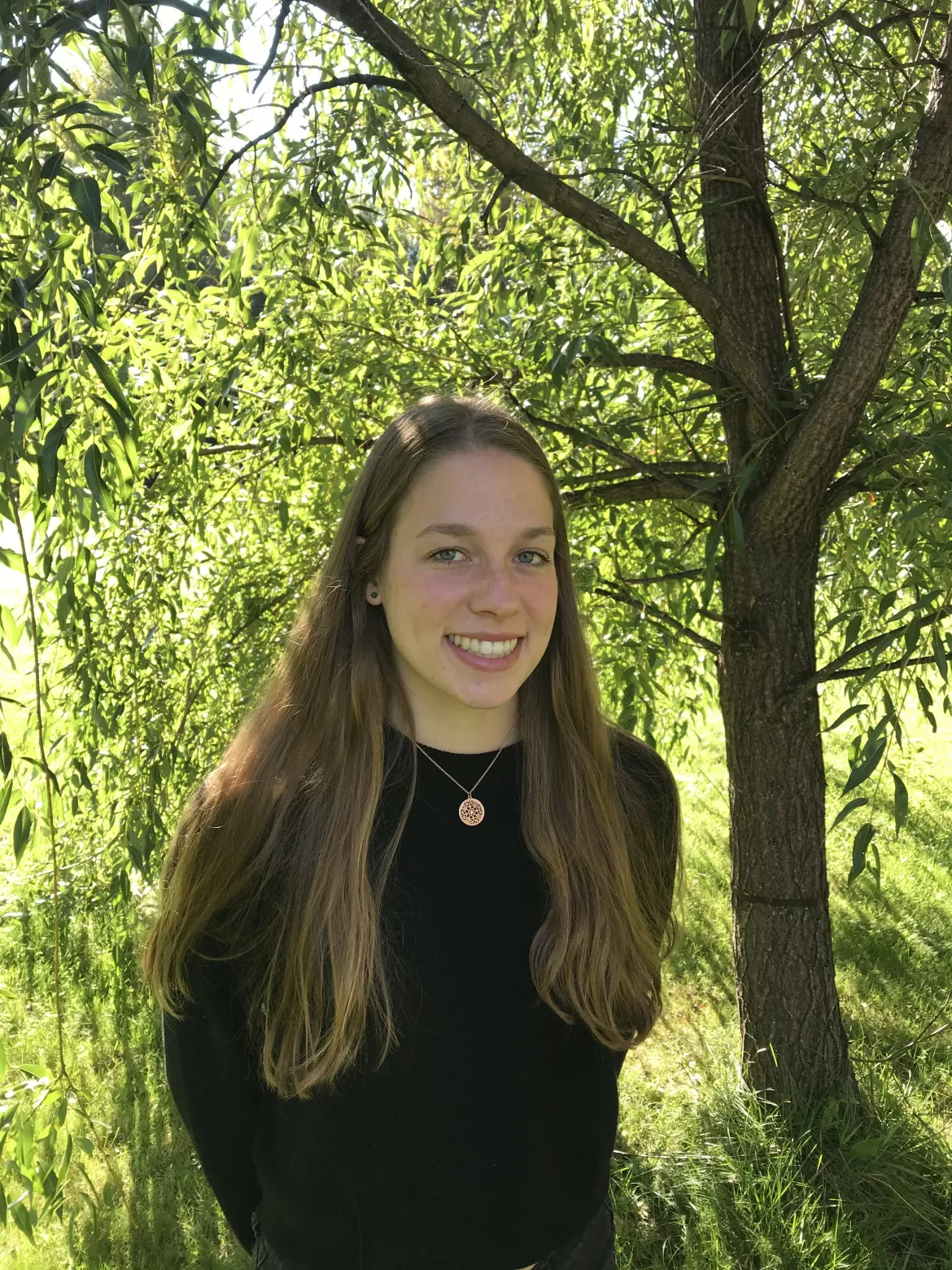Ann Duong

Hey peeps! I'm Ann and I graduated from UNBC with a background in Biochemistry and Molecular Biology in 2019, and I will be starting my Master of Science in Natural Resources and Environmental Science (NRES) in January 2021. I was a research ambassador in 2019 – 2020 and I'm very excited to be the lead ambassador this year.
I've been lucky enough to be involved in two different labs at UNBC, the Lee lab where I got to find out whether stem-loop RNA molecules would be able to downregulate cancerous KRAS protein expression, and at the Northern Analytical Laboratory Service (NALS), where I'm currently getting my hands dirty with a big project involving detecting, quantifying and removing these nasty toxins called microcystins that are released from cyanobacteria. You can check out my TEDx UNBC talk about it! It also led me to working as a Quality Assurance Officer at NALS, where I am involved in a whole bunch of other projects and I’m learning everyday about how to improve our lab services.
You're probably wondering what research actually means. Well, research means a lot of things, but to me, it means having the ability to ask "why?" If you are curious and can ask "why?", you can do research. Try it. It's pretty easy. Well, not quite. You'll most likely need a proper place, the resources, and the tools to do the research. But worry not, because UNBC has plenty of those.
Other than the research opportunities UNBC has for undergraduates, I chose UNBC because of the other opportunities I had to get involved outside of academics such as clubs, employment, and outdoor activities. UNBC exceeded my expectations by not only providing a great education but a place to grow and develop as an individual. It is where I have met my extended family - my colleagues, friends, and community members that are my mentors and support for the past 5 years in a place very much far away from home.
Rukevwe Onororemu
My name is Rukevwe (aka Rukky). I moved to Prince George in the Fall of 2019 after securing admission into t

he Master of Nursing science program, thesis stream, at UNBC. It had always been my dream to attain a Master of Nursing Science (MScN) degree due to my keen interest in academia. As such, acceptance into the nursing MScN 2019 program has been a highlight in my both my career and life goal aspirations. The decision to come to UNBC to fulfil this goal was an easy choice. Prior to applying, I read a great deal about the research exploits of the UNBC faculty and students alike. I recognised that UNBC is one of Canada’s top research universities with a flourishing nursing research community. I knew coming in that my research aspiration would be well supported through guidance from amazing supervisors and enthusiastic peers and this presumption have proved valid. I have found my professors and fellow colleagues to be genuinely invested in my success as a student and researcher, for which I am very grateful.
My passion for research was ignited in the third year of my undergraduate program after completing a compulsory course on Research and Inquiry which opened my eyes to the indispensability of nursing research to the nursing profession. As a MScN student, I love the idea of research because I see it as an act of humility. I believe that one of the ultimate goals of research is geared toward addressing the needs of others as well as contributing to the elevation of humanity. I was privileged to work in a nationally funded EQUIP study in my first role as a graduate research assistant. The study aimed to improve health equity for indigenous and non-indigenous patients visiting emergency departments to receive care. Being part of a research study of this magnitude reinforced the importance of evidence-based practice in health care and nurtured a desire to embark on a thesis project that has the potential to inform nursing practice in the future. On a more personal note, my nursing background and passion for teaching spurred my research fascination and interest in the area of pedagogy: specifically, teaching and learning methods in nursing undergraduate education. This independent research exploration will be taking place under the guidance and mentoring of my research supervisor, Dr. Caroline Sanders.
Jenna Burke
My name is Jenna Burke. I’m a fourth year Biochemistry student taking a minor in First Nations studies he

re at the University of Northern British Columbia (UNBC). I’m a volunteer Research Assistant with the Northern Biobank Initiative (NBI), an initiative built by Principal Investigator Dr. Nadine Caron that aims to create a population-based biobank in Northern British Columbia, with a First Nations Biobank embedded within. Through my participation in the consultation process with First Nations in Northern BC, I’ve been able to see how vital the researcher-community relationship, knowledge translation, and communication are in increasing equity to access to research. From this process I’ve learned that research is a powerful tool because it’s a way to create and share new knowledge, and by extension, I realized how important it is for all types of people to participate in research. Knowing this, I strive to become a strong advocate for diverse representation in research, both as researcher and participant.
Being born and raised and Prince George, I’ve been able to see how much strength having a university in one’s community can add, and I wanted to be a part of that by pursuing my degree here. My experience at UNBC surprised me because I thought going to university meant just getting a degree - I didn’t realize how many opportunities there were to get involved with, such as listening to guest speakers, taking part in activism and clubs, and being involved in research, which have all contributed to me feeling I can be a strong science student while also being a strong community member. I look forward to contributing what I’ve learned about research to my role as Research Ambassador, and as always to learning new things.
Zachary Fleck
My name is Zach Fleck and I will be completing my final year of undergraduate studies majoring in Globa

l and International Studies this upcoming year. I took a winding road to get here – I completed my first two years of university in the engineering program at the University of Alberta. I got chewed up and spit back out, fortunate enough to salvage two years of university credit from my ordeal! In stark contrast to my first two years, my time at UNBC has been phenomenal. Studying at a small university in my hometown has granted me opportunities to form close relationships with faculty, actively participate in student leadership and engagement, develop a passion for the social sciences, and engage in multiple research and experiential learning activities. The relatively small size of our community has been a huge factor in producing an experience I could not have had anywhere else.
Having lived in Southwestern China for two years has had the biggest influence on my research interests. My experiences there taught me about the value of different perspectives and the challenges of adapting to a different culture. For me, meeting people who have been enculturated outside of Northern British Columbia induces feelings of both curiosity and admiration. My research so far has allowed me to indulge these feelings by taking a ‘qualitative’ approach to investigating international student experiences at UNBC. Taking a qualitative approach means descriptive data is analyzed to answer the research question, sometimes without using any numbers at all! My first self-directed research experience occurred as part of the Global and International Studies capstone course (INTS 490) taught by Dr. Tristan Pearce, where I investigated factors affecting how domestic and Chinese international students formed relationships. For that study, I used a mixed methods approach, meaning I analyzed both qualitative and quantitative data. This past summer, I conducted research aiming to describe the experiences of international students affected by COVID-19, once again under the guidance of Dr. Pearce. For this project, I took a purely qualitative approach, analyzing descriptive data only. So far, this has entailed ‘interrogating’ the peer-reviewed literature and policies focusing on international students in Canada, as well as conducting recorded interviews with UNBC international students.
For me, participating in research means two things. Firstly, it means taking control of your own learning in a way that is meaningful to you and others. By conducting research, you get to come up with a question *you* want answered. Granted, research is not all about *you*. Your research question must address a problem relevant to society at large. Participating in research has allowed me to feel like I am forging my own destiny and making an impact in the process. Secondly, it means embracing the vulnerability of venturing into the unknown. In other words, getting messy and making mistakes (for all you ‘Magic School Bus’ fans). Each step in my research journey so far has meant challenging myself to do something I have never done before, whether it be conducting interviews with strangers, completing a research ethics board application, or designing a rigorous research methodology. Feeling like I do not know what I am doing has been uncomfortable. Looking back on how I have improved has been tremendously rewarding and well worth the discomfort. For me, these feelings have occurred less often in my regular coursework.
Before beginning my studies at UNBC, I knew the small community would provide with me a different experience than I had had in the past. My expectations were exceeded in this regard. The faculty here are incredibly accommodating and more than willing to provide mentorship to those who are enthusiastic, proactive, and motivated to learn. For this reason, the potential for undergraduate students to get involved in research at UNBC is high. I would implore any undergraduate student to ask their professors about the pathways to getting involved in research. Surprising as it may be for some, research is not only conducted in a lab by those wearing white lab coats. Since beginning my studies at UNBC, I have discovered that with the right motivation, information, and mentorship, any student can participate in research.
Alexandra Winkel (volunteer)
Hi everyone! I am Alexandra Winkel, a 3rd year undergraduate student here at UNBC. Over the last two years of

studying here at the University of Northern British Colombia, I have dabbled in a wide range of topics and have somehow managed to switch programs a handful of times, at this point I assume I have broken some type of record! Although, my educational career has not followed the straightest trajectory, in taking a large variety of classes I have been able to discover what topics get me excited about learning and what subjects I find fascinating. Because UNBC offers a vast number of courses, it has allowed me to truly find my passion and I am glad to have hopefully, fingers crossed, settled on focusing my studies on biochemistry and molecular biology with an emphasis on nutrition.
Not only has UNBC allowed me to find my passion by offering an immense number of science-based classes, the small class size and approachable and enthusiastic professors have made my university experience unforgettable. I have been able to meet and engage with not only amazing and friendly students but professors and administrators as well. As a small research-based university, UNBC gives its undergraduate students ample amount of opportunity to work alongside its professors in research. Students can apply for many research awards starting as early as first year! Not only does UNBC allow undergraduate students to help professors with on-going projects, students are also able to help design their own research project or to simply participate in a research experiment as a subject. In doing-so UNBC allows its students to get firsthand experience in the academic/research sector, while also participating and engaging in the amazing UNBC community. The small knit school has somehow successfully managed to make Prince George’s frigid winter’s feel welcoming and cozy!!
Within the last two years I have had the opportunity to form relationships with many of my professors and in doing-so I have had the opportunity to work alongside the phenomenal Dr. Lisa Wood. Together we have been studying how extreme climate change, specifically droughts, is affecting understory plants (northern oak fern). We wanted to determine if differences existed between two northern oak fern populations: one population from a wet, cool biogeoclimatic subzone, and one from a dry, warm biogeoclimatic subzone, in terms of their response to drought (indicating tolerance) and morphology (adaptations that make them better equipped to deal with water stress). After participating in this research I have learned how important research is in the development of medical and environmental infrastructure, drug and food legislations, business success and practices, and how overall research is crucial in the expansion of our knowledge and awareness. It ultimately allows you to shape the future allowing you to participate in the bettering of society. Research is made even more exciting, by UNBC’s ability to make such a wonderful research community. Where professors are easily accessible friendly and supportive!! I encourage anyone who is interested in shaping the future or being involved in an amazing community, full of opportunity and wonderful people, to participate in UNBC research!
I chose UNBC not only because I was born in Prince George, but because of the research opportunities it offers to ALL its students. UNBC has exceeded all my expectations by providing the most welcoming and supportive environment! I hope after reading this you ask yourself, what are you waiting for and get involved with the UNBC’s extraordinary research community!!